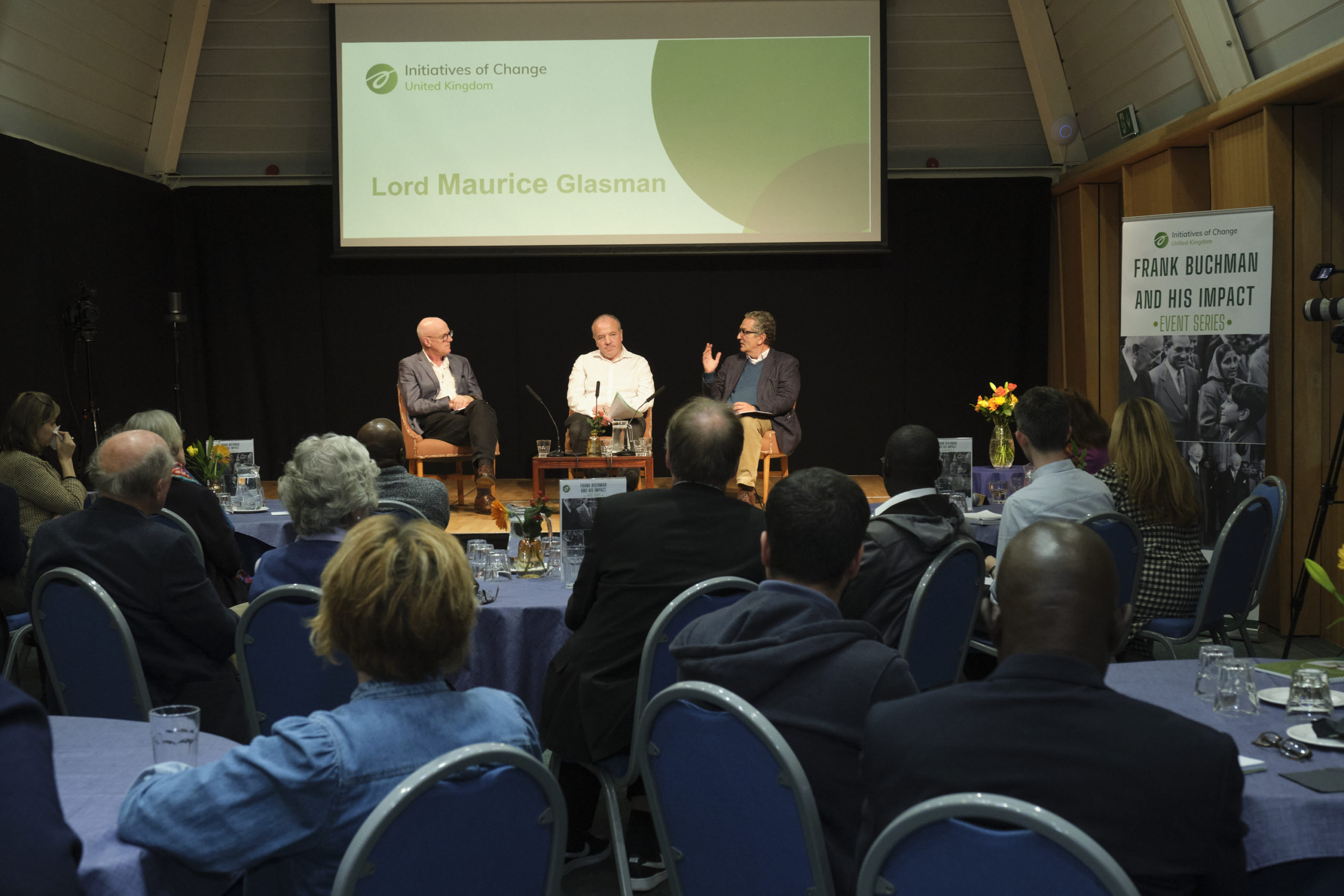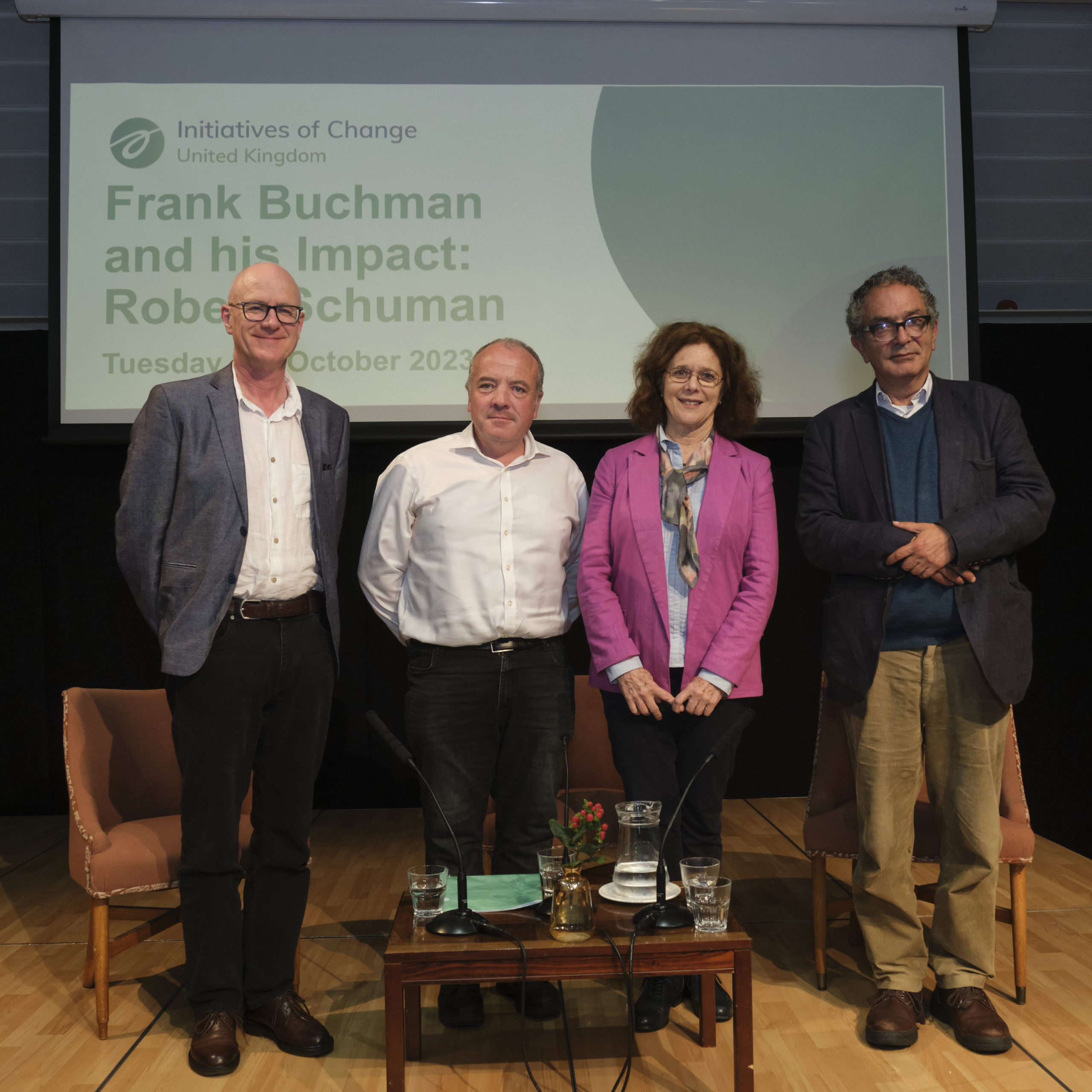By Dr Philip Boobbyer
Dr Philip Boobbyer
In our dangerous, fragmented world, we should not forget those moments in history where things have gone well rather than badly. The extraordinary rapprochement between France and Germany after the Second World War is a case in point.
The post-war French leader Robert Schuman (Prime Minister and Foreign Minister) was a key player in fostering Franco-German reconciliation in the late 1940s and early 1950s. He grew up in the disputed border region of Lorraine and knew first-hand the enmities dividing the two countries. His sense of vocation to be a bridge-builder grew out of this.
The American founder of Initiatives of Change, Frank Buchman, who was honoured by France (as well as Germany) for his peace-building efforts, met Schuman at the end of 1949 and remained in contact with him over subsequent years. Schuman sometimes felt fearful and isolated even within the French cabinet, and Buchman encouraged him not to lose heart. Franco-German relations were strained over territorial questions, and Buchman reassured Schuman that there were Germans ready to respond in a good spirit to French initiatives – figures like Chancellor Konrad Adenauer.

From left to right, Dr Philip Boobbyer, Mike Kane MP, and Lord Maurice Glasman.

Dr Philip Boobbyer, Mike Kane MP, Margaret Cosesns (Chair of IofC UK), and Lord Maurice Glasman.
In situations of crisis, Buchman tended to ‘personalise’ issues: he would try to support and connect people with the potential to give constructive leadership – either at a governmental or a grass-roots level. He thought that people who had found answers to division in their own lives were best equipped to deal with it in the political arena. Small groups of people working together and following what Scriptures call the ‘still small voice’ could help interrupt cycles of revenge and turn events in a positive direction.
Alongside his debt to Buchman, Schuman’s unifying vision was influenced by Catholic social teaching, a body of thought inspired by the Papal Encyclical ‘Rerum Novarum’ (1891) and philosopher Jacques Maritain, which gave ideological ballast to the Christian Democratic parties emerging in Europe after 1945. As a vision of society, it was well-suited to the post-war world, for its stress on solidarity and the common good, and belief that human beings are intrinsically valuable in themselves and not just as economic units, spoke powerfully to a continent polarized along social and ethnic lines.
These different elements fed into Schuman’s vision for a Europe free from nationalistic hatred, where the continent’s nations could work effectively together. The Schuman Plan (May 1950), brokered by Schuman and Adenauer (and based on ideas coming from Jean Monnet), gave practical expression to this, through enabling France and Germany to collaborate in the disputed field of industrial policy. This laid the foundations for what later became the European Union.
Sometimes in history opportunities are missed, and countries fall back into nursing old grievances and myths that seem to promise a greater level of security and success. This could have happened to France and Germany after 1945. It was due to people like Schuman and those who influenced him that it did not. A way forward existed, but the answers were like pieces in a jigsaw that still needed fitting together. It took courage, sustained work and no little inspiration to reimagine Europe and build a better future.
The full video of this event is available to watch on our YouTube channel HERE.
Philip Boobbyer, Reader Emeritus in History, University of Kent and former Chair of Trustees for IofC UK.